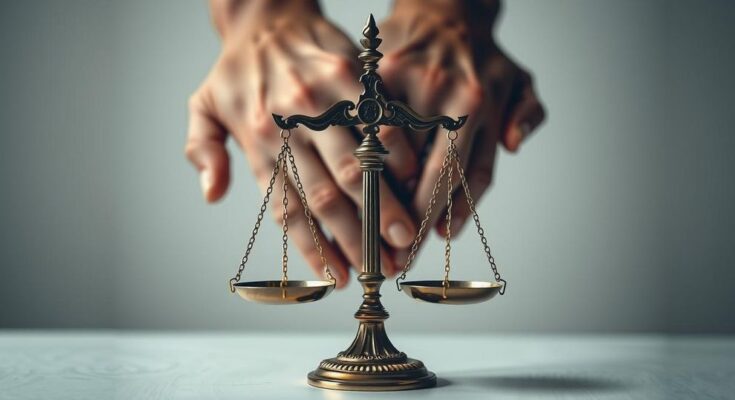A recent UN report reveals that significant human rights violations occurred against members of the Bangladeshi Hindu, Ahmadiyya Muslim, and indigenous communities during and after last year’s protests against discrimination. The report highlights that the former government, alongside the Awami League party and associated violent groups, systematically perpetrated abuses during these student-led protests. In particular, widespread violence was reported against Hindus, with homes, businesses, and places of worship targeted, especially in rural regions like Thakurgaon and Lalmonirhat.
The OHCHR Fact-Finding Report noted troubling instances of retaliatory violence as the government began losing control. Hindus, Ahmadiyya Muslims, and indigenous peoples from the Chittagong Hill Tracts faced various abuses amid an environment of widespread impunity. Though a hundred arrests were made concerning attacks on specific groups, many abusers remain unpunished, raising concerns of systematic impunity.
Interviews with affected Hindu business owners revealed rampant property destruction, looting, and the emotional toll of feeling unsafe in their communities. Reports indicated an exodus of around 3,000 to 4,000 Hindus fleeing to the border with India, fearing further communal violence. Witness accounts suggested that attacks correlated with local political sentiments, particularly from groups celebrating the fall of the Hasina government.
After the protests, local parties, including BNP and Jamaat-e-Islami, attempted to protect Hindu properties and condemned the violence. Despite this, the report highlighted that members of both parties were implicated in the violence. The UN report also underscored a longer trend of violence against religious sites in the country, especially towards Hindu temples and shrines.
The report underscores that between August 5 and 15, multiple attacks on places of worship across various religious communities took place. For instance, three Hindu temples were set ablaze while other religious minorities faced similar injustices. Notably, instances of land disputes masquerading as religious intolerance were also noted, complicating the nature of these attacks.
In summary, the human rights report reveals extensive violence perpetrated against Hindus, Ahmadiyya Muslims, and indigenous populations, primarily involving property destruction and personal assaults. Approximately 1,400 deaths are estimated, with many victims being shot by security forces. The brutal governmental response was described as a coordinated strategy aimed at suppressing opposition protests, indicating a disturbing pattern of violence and possible international crimes. Accountability and justice remain crucial for Bangladesh’s future and national healing.
A UN report reveals serious human rights violations against Bangladeshi Hindus, Ahmadiyya Muslims, and indigenous communities during protests against discrimination in 2024. Systematic abuses were documented involving assaults on homes, businesses, and places of worship, predominantly in rural areas. The report calls for accountability and justice, highlighting a troubling pattern of violence amidst political upheaval and underscoring ongoing societal challenges.
The UN report paints a stark picture of a country in turmoil, with rampant human rights abuses affecting minorities amidst political strife. The systematic targeting of Hindus, Ahmadiyya Muslims, and indigenous communities highlights the urgent need for accountability to heal societal wounds. As Bangladesh grapples with its turbulent past, the call for justice echoes strongly, underscoring the essential role of human rights in rebuilding a more equitable future.
Original Source: www.newsdrum.in



